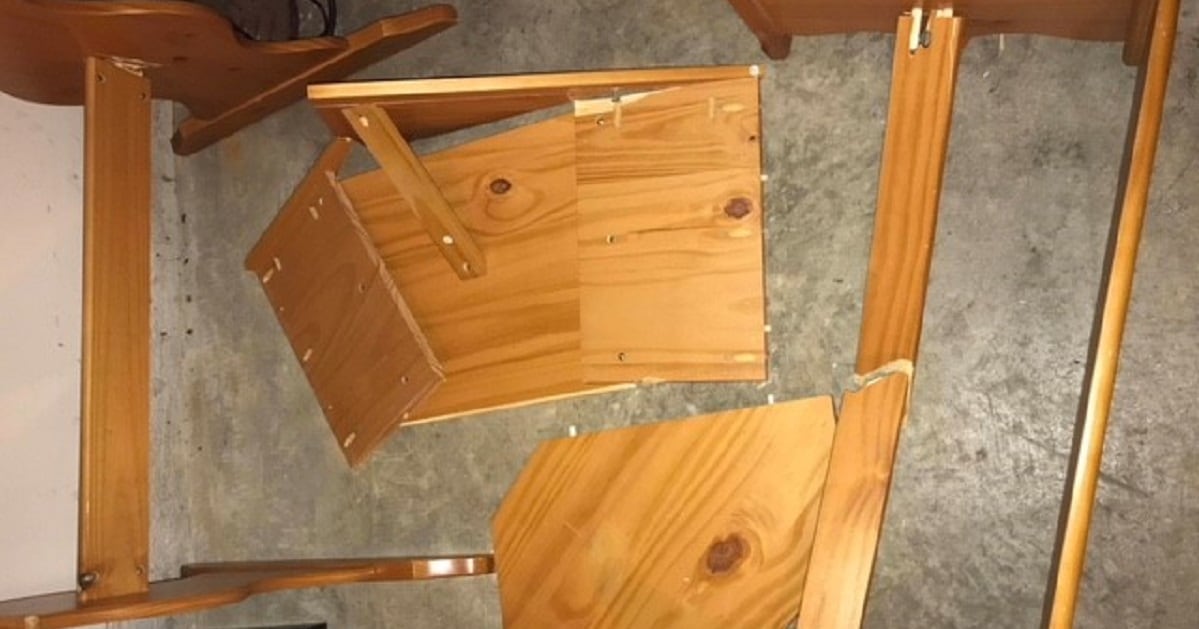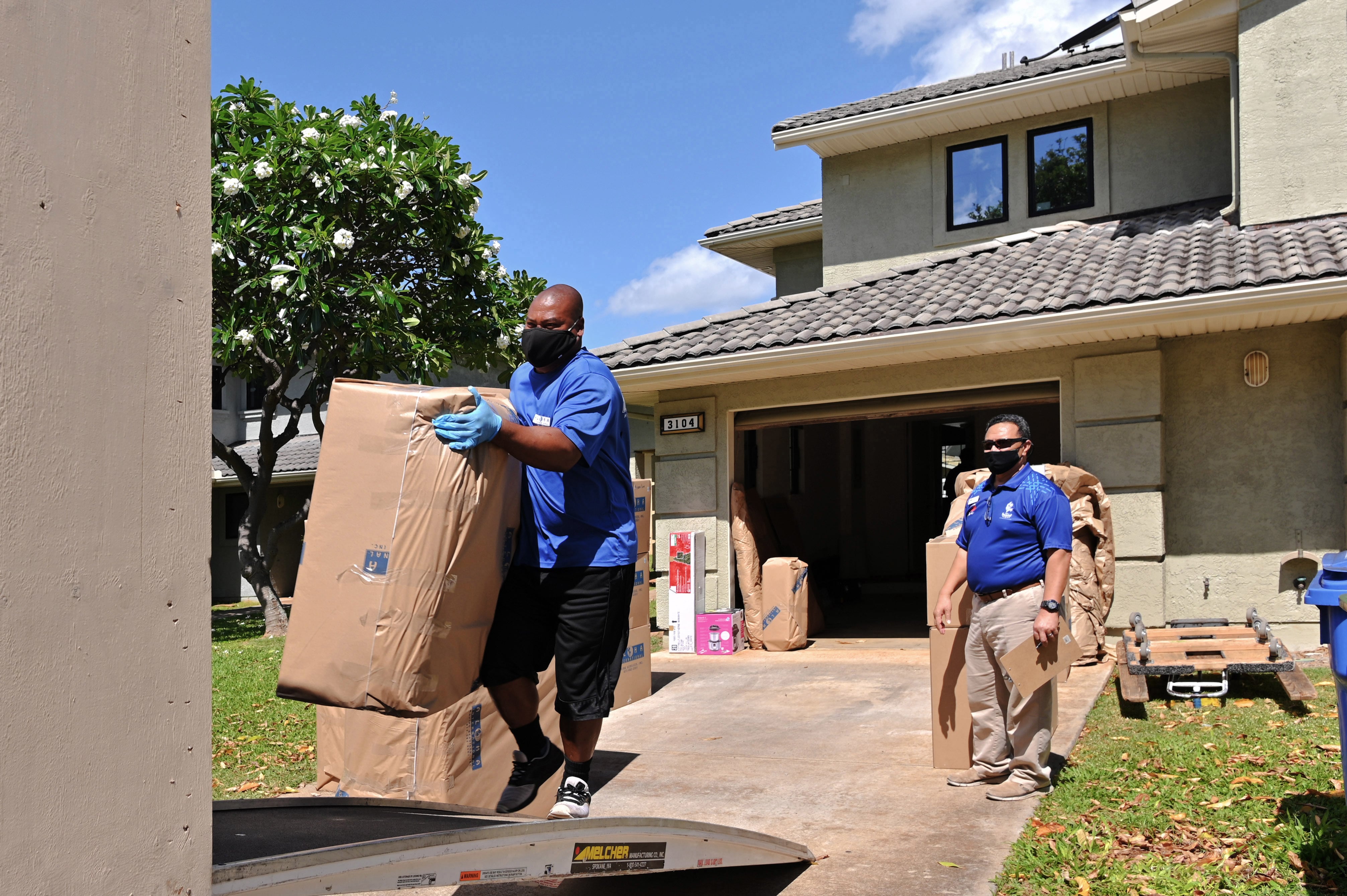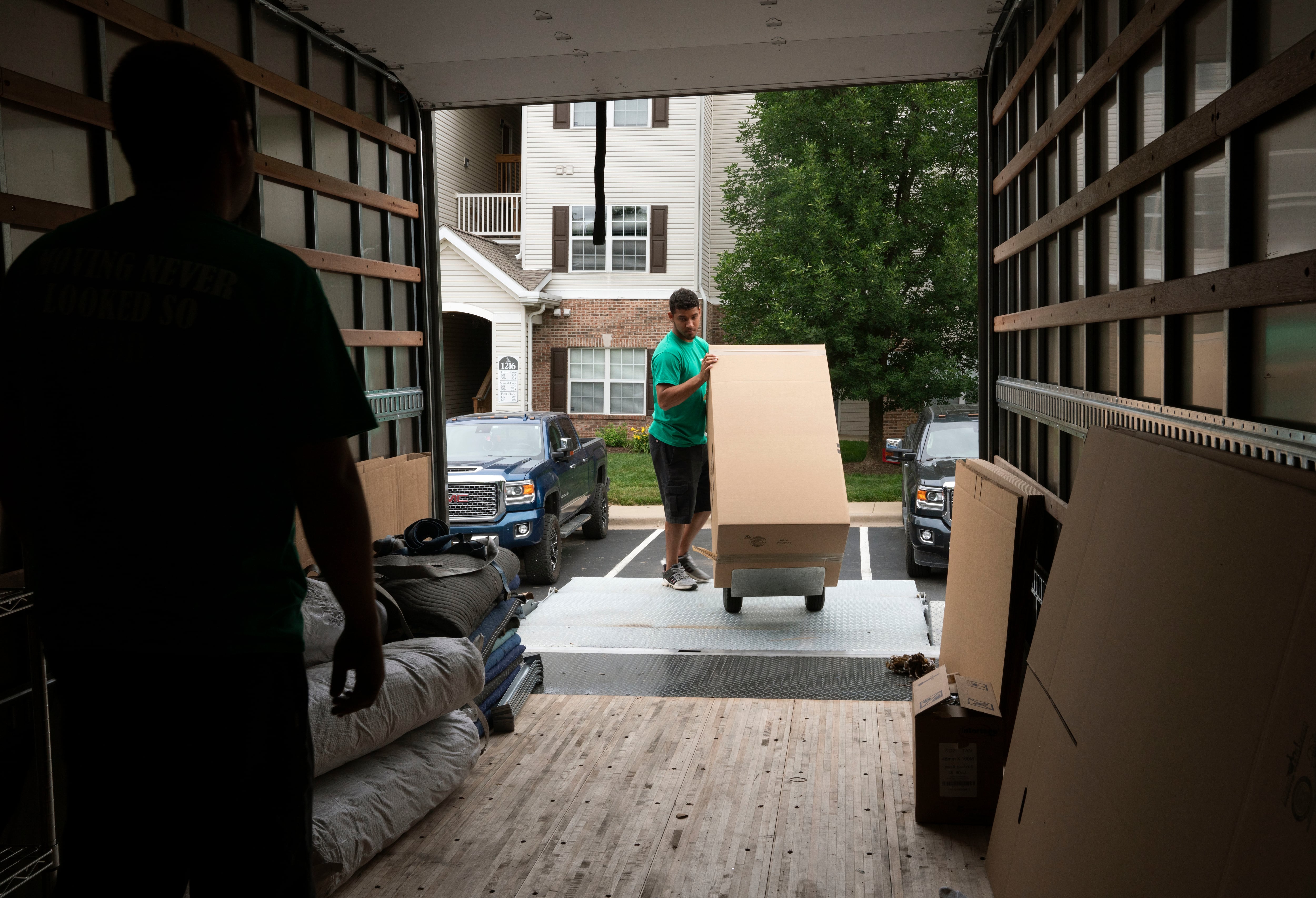About 1,000 military families have experienced missed pickup or delivery dates, communications issues or other problems with the new contractor tasked with overhauling the system for moving service members’ household goods.
That’s about 20% of the 5,195 relocation orders for shipments sent to the contractor, HomeSafe Alliance, since last April, when U.S. Transportation Command began slowly phasing in the new system. Of those shipment orders, 1,737 have been picked up, and 922 have been delivered, said Andy Dawson, director of the Defense Personal Property Management Office at TRANSCOM, during a call with reporters.
“There have been issues. HomeSafe has acknowledged them, and we have acknowledged them. In a program this size, and transformational, it’s to be expected,” Dawson said.
TRANSCOM is committed to the new system, called the Global Household Goods Contract, or GHC, Dawson said, and they are working with HomeSafe to address the problems. He urged service members and families to contact the local shipping offices at their installations about problems with HomeSafe or with movers under the legacy system.
The new system is designed to fix long-standing problems with missed pickup and delivery dates, broken and lost items and issues with claims. Those problems culminated in the summer of 2018, when moving companies didn’t have enough packers, truckers and other workers to handle the number of moves. That lack of capacity has been a problem for years.
Under GHC, one entity – HomeSafe Alliance – is now held accountable for the entire process, although TRANSCOM maintains oversight.
“GHC is here. GHC is the department’s future household goods relocation program,” Dawson said. “And despite some of the early challenges we’ve seen, we see many positive aspects of GHC, and we truly believe this will improve the service member relocation experience.”
RELATED

In January, TRANSCOM was putting 17% of shipment orders into the new system, with the remainder staying in the legacy system. The goal is to move all domestic shipments under GHC by this year’s busier moving season, which hits around April and May.
A decision is expected soon about when to crank up the volume to the next level. HomeSafe is already conducting – or scheduled to conduct – shipments in 43 states, including the majority of the high-volume locations and lanes in the military, Dawson said.
When asked about military families’ problems with missed pick-up or delivery dates, HomeSafe officials told Military Times that less than half of TRANSCOM’s reported 1,000 issues are related to missed pick-up or delivery dates. In some cases, HomeSafe adjusted pickup and delivery dates at the request of service members. According to the contractor, those adjustments are counted as delays.
“We have provided timely service in the vast majority of moves we have facilitated,” HomeSafe officials said.
The percentage of shipments under the new system is still small, as TRANSCOM has used a phased, “crawl-walk-run” approach to avoid risk to a system that moves about 300,000 shipments a year.
HomeSafe is prepared to start making all domestic moves before this year’s peak moving season, the contractor told Military Times. Officials said their network of movers grows every day as the volume of moves increases. These movers, many of whom participate in the legacy system, do the packing, loading, trucking, unpacking and other functions of a household goods move.
One key issue is moving capacity — the number of moving companies, large and small, that are willing to do business with HomeSafe. Some movers have told Military Times they can’t afford to do business at the rates paid under GHC. The reduction varies, but TRANSCOM officials acknowledged moving companies are getting about 20% less than what they are paid in the legacy system.
The government accepted HomeSafe’s rates under the contract, and HomeSafe wasn’t the lowest bidder in the contract, Dawson said.
RELATED

About 900 companies traditionally have participated in the legacy system, under individual arrangements with TRANSCOM regarding rates. Under GHC, there’s one rate for individual locations and hauling lanes, also dependent on the shipment weight and other factors.
TRANSCOM officials didn’t say how many movers had signed up with HomeSafe. “We do have an expectation that HomeSafe will build that capacity. They have shared with us they have signed master service agreements [with movers] to be able to cover the requirements,” Dawson said.
“What we’re hearing and seeing is that despite the master service agreement, there may be companies that are not taking the business because they are experiencing the [difference] in cost that they would make under the [legacy system],” he added.
HomeSafe officials said they can’t speak to why moving companies are now refusing shipments after they had already signed up with HomeSafe, knowing the rates.
“We are facing headwinds from those in the moving industry who oppose this transformation that military families have repeatedly asked for and deserve,” they said. “These opponents are pressuring moving companies not to work with HomeSafe.”
Under HomeSafe’s model and based on their “bottom-up, market-based” research, “HomeSafe’s moving partners earn reasonable profits working with us,” those officials insisted.
Meanwhile, TRANSCOM’s Dawson said there’s not enough moving capacity in the legacy program. And in 2024, service members’ overall satisfaction rate with their move under the legacy program was 77%. “Tens of thousands of service members” are being affected by the legacy program, he said.
While officials are committed to the Global Household Goods program, they are watching the performance of HomeSafe, Dawson and other officials said. “Show cause” letters have been issued to HomeSafe, primarily related to missed pickups, said Kenneth Brennan, director of acquisition at TRANSCOM. When TRANSCOM officials identify a problem, they send these formal requests for information about the cause and what corrective action is being taken.
In addition, if HomeSafe meets the key performance metrics of the contract, they are awarded the option to continue. If not, the contract will be competed again. TRANSCOM awarded the $6.2 billion contract — with options worth up to a potential $17.9 billion over nine years — to HomeSafe Alliance, a consortium of companies. Work began in early 2023 after contract protests ended.
RELATED

Under the new system, HomeSafe is fully responsible for shipments, from the time a moving company is assigned to packing, hauling and unloading. The alliance also handles any claims for loss or damage.
The International Association of Movers has cited concerns that the “one-size-fits-all approach endorsed by TRANSCOM ignores the nuanced realities of military moves, where local expertise and established relationships are critical.”
“What will happen when TRANSCOM decides to push all the moves into the new system after it has demonstrated it cannot handle this small volume?” the association asked in an editorial posted on its website.
In addition, the association cautioned that “the sheer scale of the transition, combined with tight and ever-changing timelines, creates a high risk of operational failure during the initial phases.
“Such disruptions risk diminishing moving capacity for the U.S. military and degrading service quality for military families,” the editorial reads.
Karen has covered military families, quality of life and consumer issues for Military Times for more than 30 years, and is co-author of a chapter on media coverage of military families in the book "A Battle Plan for Supporting Military Families." She previously worked for newspapers in Guam, Norfolk, Jacksonville, Fla., and Athens, Ga.




